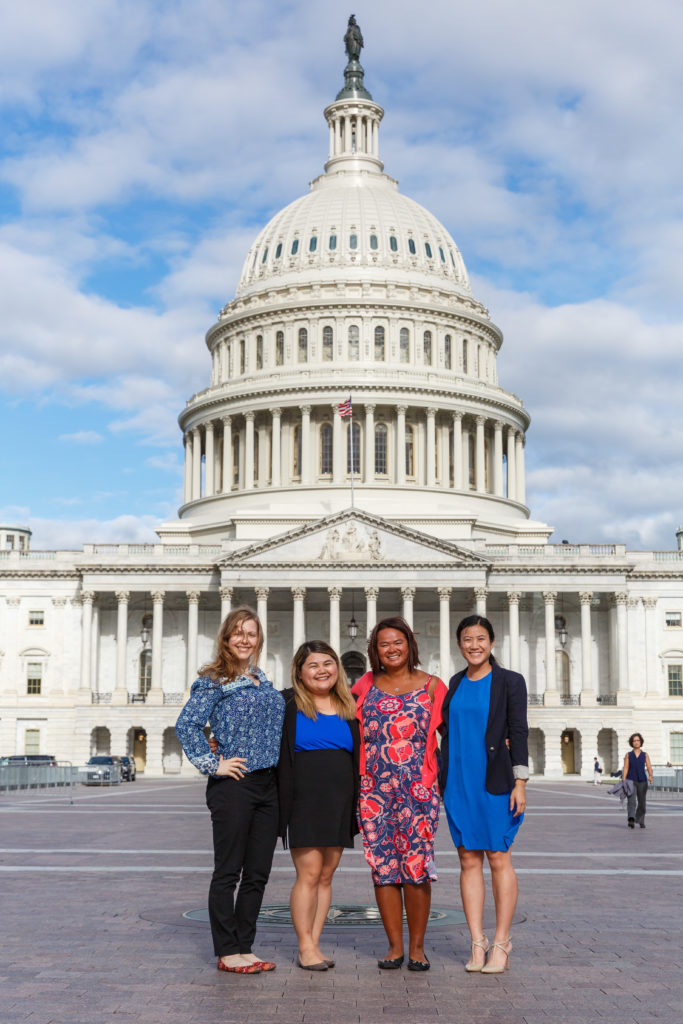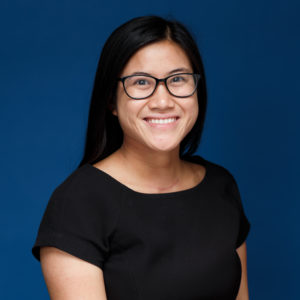November 26, 2019 IN: Community Stories, Our Voices
Voices from LAT 2019: Lily Nhoisaykham

Why?
I applied to LAT for numerous reasons, but the main reason was because of my own personal experience with the US healthcare system. In March 2018, I was diagnosed with Graves’ disease, which is a serious form of hyperthyroidism. Graves’ disease is an autoimmune disorder which causes your body to produce an excess amount of thyroid hormones. When left untreated, Graves’ disease can lead to heart failure, stroke, blindness, and, in the most extreme cases, even death.
I was fortunate in many ways because, for one, thyroid diseases are one of the most treatable autoimmune diseases. Second, I had the means and resources to seek treatment. This meant that I had:
- Insurance that covered my treatment (medication, specialist visits, ultrasounds, surgery, etc.)
- Friends in the medical field that could verify my doctors were following the correct protocol for my disease
- An extremely flexible job that allowed me to go to all of these numerous doctor appointments and post-surgery follow-ups (Doctors’ appointments could take anywhere between one to three hours including wait time, but not including travel time.)
- My own car, so I wasn’t limited to choosing doctors that were near me or public transit
In summary, I had: a treatable disease, legitimate insurance, no language or knowledge barriers with my healthcare providers, a flexible job, and transportation. I mention all of these things because it was still a difficult and confusing process for me to navigate. And it made me extremely empathetic to how others who are ill and do not have any of my privileges could navigate this healthcare system — especially those in my community.
I’ve seen the toll an illness has taken on families in my community, often requiring all able-bodied family members to arrange their schedules so at least one person can attend these doctors’ appointments. This family member often has to provide transportation, translation, and monitoring of medical bills. I’ve also seen the drastic effects of culturally incompetent care — often leading to noncompliance (i.e. patients not following a doctor’s order) because healthcare providers did not provide them culturally effective solutions.
I felt so moved by my experience and what I have witnessed in my community, that I applied to SEARAC’s LAT program with the health track as my top choice. I believe access to quality healthcare is a right that everyone should have, and I wanted to learn more about how I can ensure this right for my community.
In summary, I had: a treatable disease, legitimate insurance, no language or knowledge barriers with my healthcare providers, a flexible job, and transportation.
LAT was an emotionally exhausting but also extremely rewarding experience; I’m so grateful I had the opportunity to attend. There were numerous large group exercises where we explored common themes around our Southeast Asian-American identity, such as common socio-economic issues, family relations, intergenerational trauma, and the impact of the year 1975. We also learned about issues affecting particular groups, such as how the ICE raids have been targeting our Cambodian communities. The large group exercises were broken up by our small group sessions, determined by your LAT track (e.g. health, immigration, or education). In the health track, we learned details about the specific policies and bills that are about to be introduced or already introduced in the House or Senate. I am a huge supporter of the Health Equity and Accountability Act (HEAA) which provides a vision for what quality healthcare looks like for everyone. We also got to share our personal stories (using photos) on why we are advocating. From there, we broke out into our legislative groups, consisting of about three LAT participants and a facilitator.
We practiced our pitch to our congressmen and congresswomen with our legislative groups.
Consequently, these were the people we spent the most time with. I was fortunate enough to have my LAT roommate in my legislative group, which really allowed us to become fast friends. The other participant had over 10 years of experience advocating for Asian-American rights in her state legislature — it was inspiring! Leading our legislative group, our facilitator was a seasoned policy advocate to help prep and guide us through the whole process. The diversity in experience and stories within my group was truly moving.
We would end each day with a group reflection on what we discussed and what we learned.
Learnings
I learned so many things at LAT, but my biggest takeaways were:
- Your representative works for you and the process to schedule an appointment and actually meet with them to discuss issues that affect your community is easier than expected. Seriously, why do they not teach this in high school or college?
- Data disaggregation matters and influences/shapes how policy is created. In relation to healthcare, being able to see a high rate of liver cancer in Southeast Asian ethnicities as compared to other Asians (East or South Asians) or ethnicities can help healthcare providers determine how to provide better care (e.g. better public health campaigns, earlier diagnoses, etc.) to these populations.
- The census is a big deal because it determines resource allocation, political representation, and visibility. I signed up to be a SEARAC Census Ambassador and I encourage you to learn more and pledge to get your community counted as well.
I can’t believe I learned so much in such a short amount of time. The experience overall has led me to getting even more involved with my community- both locally and nationally. I’ve been volunteering my time with the Lao American Association to build a community center in Houston and contributing to the Little Laos on the Prairie Blog to capture the stories of the Lao Diaspora movement.
 Lily participated in this year’s LAT program on the health track. To help SEARAC continue to support powerful advocates like Lily, please consider contributing to our “$40 for 40 Years” fundraising campaign here.
Lily participated in this year’s LAT program on the health track. To help SEARAC continue to support powerful advocates like Lily, please consider contributing to our “$40 for 40 Years” fundraising campaign here.





